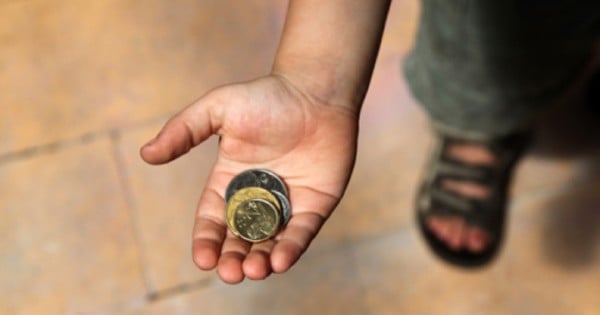If my kids are being really well-behaved, have done their homework and not made me yell too much, I give them $2 on a Friday to splurge at the school tuckshop.
For two bucks they can get a bag of seaweed snacks, a frozen fruit popsicle or an “energy ball” and a bag of popcorn. Long gone are days of the Paddle Pop at lunchtime.
Last week, my eight-year-old called his younger brother an “idiot” so he missed out. The younger brother, who, truth be told, was being a bit of a twat, missed out too on account of his idiotic behaviour.
This week they’ve done okay so they’ll probably get that shining gold coin to spend up big.
I always thought I was being generous, in fact I even wondered whether I was being extravagant giving them a gold coin every week but it turns out my lot are at the lower end of the pocket money spectrum when it comes to Australian kids.
A survey has shown that Aussie kids are given $1.8 billion annually in pocket money. The Cartoon Network’s annual “New Generations” study has found that parents are giving their children on average $556 a year.
A separate survey showed that children’s pocket money changes according to where they live – with kids on the Sunshine Coast getting around $40 a week.
That’s over $2000 a year, and makes for a hell of a lot of mixed lollies.
Who we pay and the amount seems to mirror society.
For more parenting stories listen to This Glorious Mess, the podcast for imperfect parents.




Top Comments
That 3rd paragraph is just 'gold' to me :) :)
I pay my kids if they help out. Generally they save it so they can buy something special.